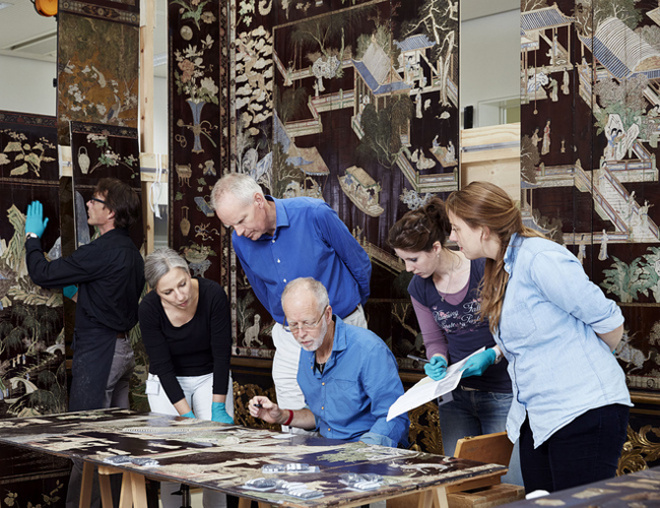
Bard Graduate Center is pleased to announce the formalization of its intellectual partnership with the Rijksmuseum in Amsterdam. Generated by our “Cultures of Conservation” initiative, a project generously supported by the Andrew W. Mellon Foundation, this collaboration has two components: an international Summer School for graduate students interested in history through material culture, and a fellowship for early career conservators and cultural heritage scientists.
The Summer School program, “Objects as Historical Evidence,” began as a pilot in July 2016 as a joint endeavor of the BGC, the Rijksmuseum, and the University of Amsterdam. The course aimed to show how objects could be studied not only for their aesthetic value as art objects, but also for their historical value as evidence. It has now been scheduled to run during the summers of 2018 and 2020. Applications for the 2018 summer program are due March 18 and can be completed online.
In fall 2017, conversations began among Bard Graduate Center, the Conservation & Scientific Research Department of the Rijksmuseum, and the Helmholtz Center for Cultural Techniques of the Humboldt University in Berlin (Image. Knowledge. Gestaltung) around the subject of “active matter.” This grew into the research project “Conserving Active Matter,” which launched with a two-day symposium in November 2017. The goal of the project is to contribute to building a philosophy of conservation for a world of active materials. Doing this requires a new kind of self-identification by conservators as humanists, argued Robert van Langh, head of the Conservation & Scientific Research Department at the Rijksmuseum. Further discussions led to the creation of a joint fellowship for young conservators who will spend six months in New York based at BGC and six months in Amsterdam based at the Rijksmuseum. With this fellowship, we aim to refocus attention on the life course, rather than the birth, of objects and so bring the conservator or cultural heritage scientist into the conversation.
“We are thrilled to be working closely with the Rijksmuseum on these two parallel and related projects,” said Dean Peter N. Miller. “Being in the collections, and in the conservation laboratories, is where we want our students and faculty to be. We want to help create a new world of learning in which the conservator’s training makes possible a broader conversation about material culture, one that includes conservators and curators, but also archaeologists, anthropologists, art historians, historians, and artists.”
